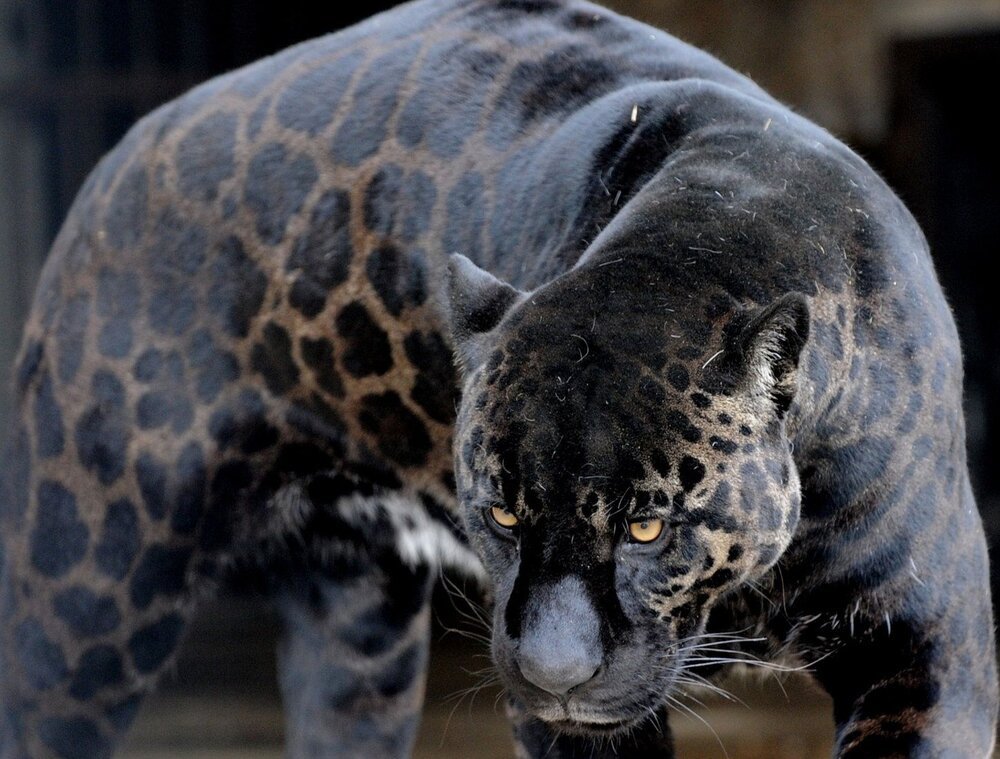you are not diseased
Back and forth, over and over. Pacing, turning, pacing; raw animal wildness for a few athletic strides and then a graceful, grudging turn. Over and over, for as long as I watched, and presumably, for every waking moment thereafter.
I was visiting the Desert Museum in Tucson, Arizona, some 20 years ago. The collection was mostly unremarkable, the expected varieties of desert plants and small animals, tourists and gift shop. But turning a corner on the path, there stood a cage some 20 feet long, occupied by the most remarkable creature I had ever seen–a black jaguar. Wild perfection, power and grace, barely contained by slender steel bars. A thunderstorm in a bottle.
The experience remains seared into my memory and has become a reference point for how I understand the world and the predicament of modern human life. I identify with that animal and my body understands. The jaguar’s predicament is also our own.
But as so often happens in the modern world, we fail to see the big picture, the context and the setting. The jaguar is obviously suffering, but the modern physician ignores the cage and focuses on the animal’s physiology. He takes note of variations in blood chemistry, elevated levels of stress hormones, increased blood pressure and concludes that the animal is suffering from a neurotransmitter imbalance or an anxiety disorder, maybe ADD or ADHD. He prescribes medication or a wellness program to help him alleviate his stress. He points to the animal’s upbringing or simply blames him outright for his inability to adapt. His constant pacing, his refusal to settle down, these are nothing more than character flaws. If only he learned to manage his emotions, we would all feel so much better.
This reminds us of Sebastian Junger’s famous conclusion in his book Tribe. Writing about the PTSD experiences of veterans returning to a highly individualized, hyper-competitive society, he concludes “The problem is not with them, the problem is with us.” In other words, the problem is not with the animal. The problem is with the world that holds him captive.
As dedicated reductionists, our first inclination is to go directly to the object or organism in question. We bypass context, we ignore environment, we disregard setting. The jaguar, the human child, the adult–these are nothing more than isolated, broken mechanisms that need to be fixed. So we measure, assess, evaluate and medicate. If we can fix the animal and return him successfully to his cage, we’ve succeeded. So we believe.
But this suggests a profound paradox for health in the modern world. If you happen to be truly healthy, which is to say wild, you will feel your incarceration intensely. Your body will be quick to respond with heightened vigilance, anxiety and hyperactivity. Incarceration is a direct threat to health and survival. It would be truly strange if your body responded any other way.
So what if our anxieties, stress and insomnia are really not disorders at all? What if they are utterly normal responses of organisms that are forced to live in abnormal circumstances? What if they are actually markers of health and wildness? Is this view not liberating? Perhaps there’s nothing whatsoever wrong with you or your brain. In fact, your reactions are perfectly normal.
Now let’s suppose that we allowed our modern physician to medicate that jaguar. Give the animal a powerful dose of benzodiazepines and he becomes compliant, calm and reserved. Have we succeeded? On the contrary. The physician might well feel better, but his efforts have simply compounded the problem. He’s simply deepened the animal’s predicament and kicked the can of adaptation down the road. Months or years later, someone will pay the price.
As wild animals with a deep heritage in nature, human children and adults are kin with that jaguar. We want to move and explore our world, but we cage ourselves in schools, workplaces, vehicles and aircraft. We expect one another to conform to endless hours at the computer, moving abstract symbols in return for abstract rewards. And then, to add insult to the original injury, we blame ourselves for our inability to adapt. We medicate our children and our workers, counsel them with wellness programs and put them back into the environment that caused the affliction in the first place.
But wild human animals are not the problem. The problem is our culture of incarceration, a culture that expects and demands chronic devotion to production and profit. A culture that rejects our animal nature and denies our interdependence with habitat and one another. A culture that celebrates freedom while denying the very movement and vagility that we so desperately need for health and sanity.
The time has come to repeal the work ethic and replace it with a health ethic, a habitat ethic and most of all, a life ethic. Start building a culture that respects the body and the human spirit. Give the animal room to move.
Set the jaguar free. Set the humans free.
